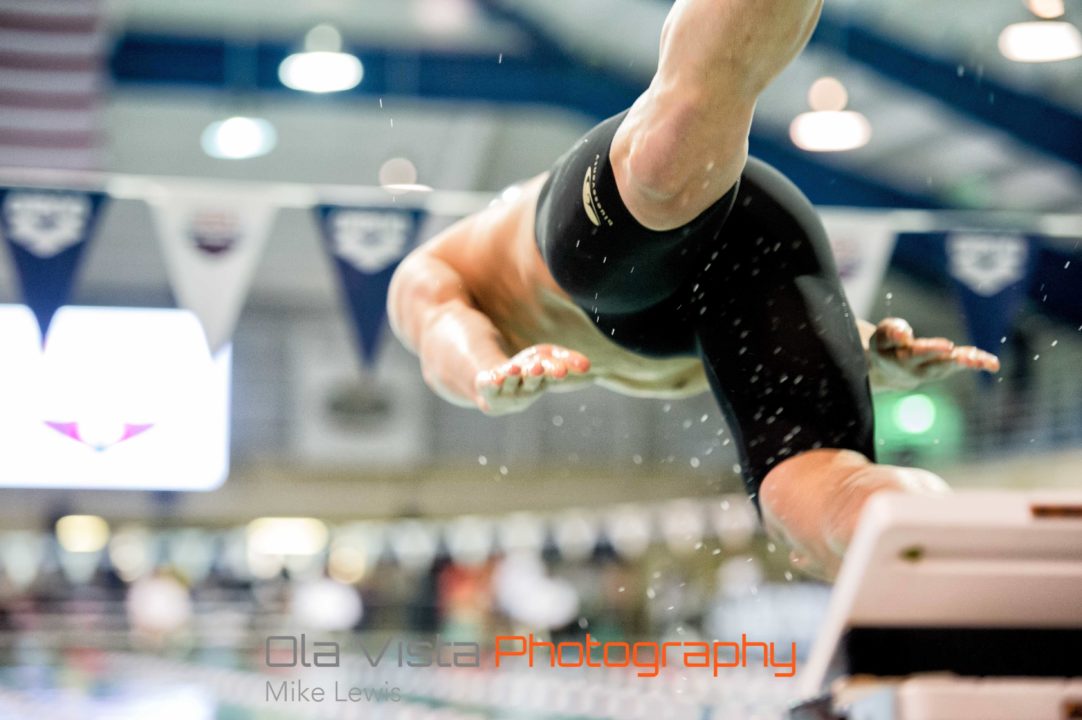Sleep is of paramount importance to any athlete’s training, but swimmers in particular must be able to train well in the early hours of the morning on a regular basis. Waking up at 5 a.m. (or even 4 a.m.) can throw your training off if you haven’t had enough shut-eye. Let’s discuss how you can make sleep a priority as a means to boost your performance.
1. Stick to your Bedtime
At night, it is easy to get distracted with things you would like to finish before bed—ranging from homework to your favorite TV show. When 10 or 20 minutes pass by, you lose precious time that your body could use to fall asleep. Get in the habit of planning to be in bed before a specific time, regardless of things you feel compelled to do. You will need to be more efficient with your work earlier in the day, and less attached to entertainment right before bed. The value of being well-rested for training the next day and any other tasks is much higher than needlessly staying up late.
2. Limit Screen Time
With laptops, TVs, phones, and tablets, it is easy to keep your eyes on a screen until bedtime. This screen time can hinder your ability to sleep well. Artificial light from devices can tinker with brain chemicals like melatonin that promote sleep. One study found that 2 hours of exposure to a bright screen reduced melatonin levels by up to 22%. In the hours before bed, dim your screen if you must use a device. Otherwise, turn off your electronics and opt for a book or magazine. This can be especially difficult for teenagers, whose circadian rhythms (internal biological clocks) are organized such that a peak in activity occurs around 11p.m. While teenagers may be more alert late at night, they still require ample sleep to perform well in the morning.
3. Drink Water at Night
After several hours of sleeping without any fluid intake, the body wakes up mildly dehydrated. This dehydration can be compounded by a high-salt dinner or drinking beverages with sugar or caffeine at night. Drink water from dinner onward, and have a glass of water when you wake up for practice in the morning. This will hydrate you, boosting your metabolism and helping your body flush out any residual toxins from the day before. Hydrating before and after sleeping thus helps in the recovery process by supporting good circulation and exchange of nutrients in the muscle.
Bottom line: For your sleep to help your performance, you have to make lasting changes in bedtime habits. Whether that means shifting your work schedule to the morning, planning ahead to avoid late nights, or unplugging from the digital world to rest your mind, try making one of these changes to your lifestyle. Sleep is about quality and quantity. Give it the same attention and focus you apply to your training and you’ll recover quickly, be healthy, and wake up ready to get after a challenging workout.
References:
1. http://well.blogs.nytimes.com/2012/09/10/really-using-a-computer-before-bed-can-disrupt-sleep/?_php=true&_type=blogs&_r=0

About BridgeAthletic
 BridgeAthletic works with elite professional, collegiate, and club swimming programs to provide a turnkey solution for dryland training. Led by Nick Folker, the top swimming strength and conditioning coach in the world, our team builds stroke-specific, custom-optimized dryland programs for each of our clients. The individualized workouts are delivered directly to athletes via our state of the art technology platform and mobile applications. Check Nick and BridgeAthletic out as recently featured in SwimSwam.
BridgeAthletic works with elite professional, collegiate, and club swimming programs to provide a turnkey solution for dryland training. Led by Nick Folker, the top swimming strength and conditioning coach in the world, our team builds stroke-specific, custom-optimized dryland programs for each of our clients. The individualized workouts are delivered directly to athletes via our state of the art technology platform and mobile applications. Check Nick and BridgeAthletic out as recently featured in SwimSwam.
 Nick Folker is the Co-Founder and Director of Elite Performance at BridgeAthletic. Nick’s roster of athletes includes 35 Olympians winning 22 Olympic Medals, 7 team NCAA Championships and over 170 individual and relay NCAA championships. Megan Fischer-Colbrie works as the Sports Science Editor at BridgeAthletic. Megan was a four-year varsity swimmer at Stanford, where she recently graduated with a degree in Human Biology. The Championship Series by BridgeAthletic is designed to empower athletes with tips from the pros that will help them reach peak performance come race day. We will be covering competition-focused topics such as nutrition, recovery, stretching, and mental preparation.
Nick Folker is the Co-Founder and Director of Elite Performance at BridgeAthletic. Nick’s roster of athletes includes 35 Olympians winning 22 Olympic Medals, 7 team NCAA Championships and over 170 individual and relay NCAA championships. Megan Fischer-Colbrie works as the Sports Science Editor at BridgeAthletic. Megan was a four-year varsity swimmer at Stanford, where she recently graduated with a degree in Human Biology. The Championship Series by BridgeAthletic is designed to empower athletes with tips from the pros that will help them reach peak performance come race day. We will be covering competition-focused topics such as nutrition, recovery, stretching, and mental preparation.
Follow BridgeAthletic on Twitter here.
Like BridgeAthletic on Facebook here.
